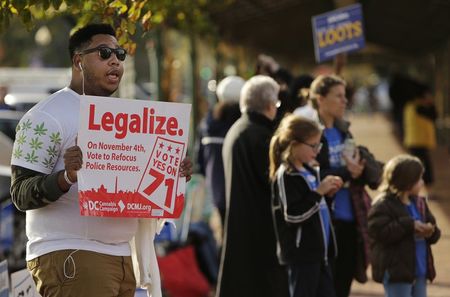VIENNA (Reuters) - Moves by some U.S. states to legalize marijuana are not in line with international drugs conventions, the U.N. anti-narcotics chief said on Wednesday, adding he would discuss the issue in Washington next week.
Residents of Oregon, Alaska, and the U.S. capital voted this month to allow the use of marijuana, boosting the legalization movement as cannabis usage is increasingly recognized by the American mainstream.
"I don't see how (the new laws) can be compatible with existing conventions," Yury Fedotov, executive director of the United Nations Office on Drugs and Crime (UNODC), told reporters.
Asked whether there was anything the UNODC could do about it, Fedotov said he would raise the problem next week with the U.S. State Department and other U.N. agencies.
The Oregon and Alaska steps would legalize recreational cannabis use and usher in a network of shops similar to those operating in Washington state and Colorado, which in 2012 voted to become the first U.S. states to allow marijuana use for fun.
Marijuana remains classified as an illegal narcotic under federal law, although the Obama administration has said it was giving individual states leeway to carry out their own recreational-use statutes.
Fedotov suggested the U.S. developments may be part of a wider trend that he said the UNODC was following.
On the international level, Uruguay's parliament in late 2013 approved a bill to legalize and regulate the production and sale of marijuana -- the first country to do so.

The International Narcotics Control Board (INCB) has said Uruguay's new bill contravened the 1961 Single Convention on Narcotic Drugs, which it says requires states to limit the use of cannabis to medical and scientific purposes, due to its dependence-producing potential. The Vienna-based INCB monitors compliance with this and two other drug control treaties.
(Reporting by Fredrik Dahl; Editing by Crispian Balmer)
